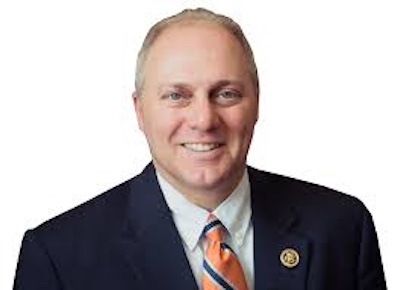Medicaid covers most costs outside prison
Published 8:20 pm Sunday, October 8, 2017
Do prisons and jails release inmates early to avoid paying for medical costs, including treatment and medicine?
When inmates are let out, do the facilities provide them with their prescribed medicine?
Trending
Ken Pastorick, spokesman for the state Department of Public Safety and Corrections, said the state has “for many years” sent inmates for treatment at medical facilities outside of prison.
“This has been done for two reasons. One, the department is not equipped to provide certain types of health care treatment for our aging, infirmed and chronically ill population,” Pastorick wrote in an email.
“Secondly, in getting care outside of prison walls offenders are able to be enrolled in Medicaid, with the federal government picking up most of the tab, and saving state taxpayers money.”
Sick inmates who no longer pose a threat to the public may receive “medical parole,” which allows them to finish their lives under doctors’ care, he said.
Medical parole is unavailable to inmates who are serving sentences for murder or are awaiting execution, and those who are released for treatment remain under state supervision.
State law says officials can recommend inmates for medical parole or treatment furlough — a program that takes effect Nov. 1 — only after giving “full consideration” to offenders’ crimes and histories and their risk to society.
Trending
“The parole term of an offender released on medical parole or medical treatment furlough shall be for the remainder of the offender’s sentence, without diminution of sentence for good behavior. …,” reads Louisiana R.S. 15:574.20.
“If it is discovered through the supervision of the offender … that his condition has improved such that he would not then be eligible for medical parole or medical treatment furlough … the committee may order that the offender be returned to the custody of the Department of Public Safety and Corrections to await a hearing to determine whether his parole or medical treatment furlough shall be revoked.”
Offenders whose parole is revoked because of improved health must return to prison, but do receive credit for the time they served on parole.
Under state Department of Corrections policy, Pastorick said, offenders receive at least a two-week supply of prescription medicine when they’re released from custody.
For more info: http://doc.louisiana.gov.
The Informer answers questions from readers each Sunday, Monday and Wednesday. It is researched and written by Andrew Perzo, an American Press staff writer. To ask a question, call 494-4098 and leave voice mail, or email informer@americanpress.com.





